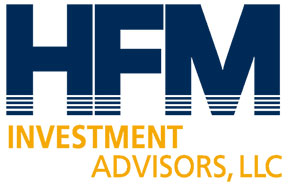
Shifting from Saver to Spender: Embracing Financial Freedom in Retirement
As we approach retirement, one of the biggest transitions we face is shifting from the mindset of a saver to that of a spender. This change is often more difficult than it sounds. Many of us have spent our entire working lives focused on saving, and once the steady paycheck stops, it can feel like an overwhelming leap to start spending the wealth we’ve worked so hard to build.
In the latest episode of the Dollar Wise Podcast, Catherine Allen-Carlozo, Certified Financial Planner at HFM Investment Advisors, explored this very topic with a couple of retired clients who were struggling to enjoy their retirement due to fear of running out of money. They were living only on their Social Security benefits, barely touching their savings, and feeling anxious about their future. Their fear stemmed from a common question: “What if we live longer than expected? What if there’s a market crash? What if medical expenses drain our savings?”
Sound familiar?
It’s a story many of us can relate to: The anxiety around the unknowns of retirement can often outweigh the excitement of enjoying the fruits of our labor. But the key to thriving in retirement is not simply about saving—it’s about confident spending.
The Shift from Fearful Saving to Confident Spending
When helping her clients through this transition, Catherine’s goal was to move them from a scarcity mindset, driven by fear, to an abundant mindset, where they could enjoy their money without worry. But how do you make this shift?
The first step is recognizing that your money has a purpose. It’s not just sitting there waiting to be hoarded; it’s there to support the life you want to live. Instead of asking, “How much can I keep?”, ask yourself, “How can I use this wealth to create the most fulfilling life possible?”
Once they understood that, Catherine developed a clear strategy for how they could withdraw money confidently without stress. She structured their income streams to be predictable, much like the steady paycheck they were used to, by setting up monthly distributions from their retirement accounts.
Some years might see them splurge on a big vacation to Europe, while other years could be for more modest trips. Their withdrawals would align with market performance, so they could take advantage of good years without sacrificing peace of mind in years when markets aren’t as favorable.
The 4% “Rule”: A Guide, Not a Hard and Fast Rule
Catherine also talked about the 4% Withdrawal “Rule”—a common piece of financial advice many of us have heard. But here’s the thing: it’s not a rule, it’s more of a guide. The idea is that by withdrawing 4% of your portfolio each year, you can sustain your savings over the long run while allowing your portfolio to grow.
But, as Catherine explained to her clients, every year will be different. Market fluctuations and individual financial needs can impact how much you should withdraw. That’s why regular check-ins with your advisor are essential—to help ensure you’re on track, adjust for any changes, and maintain your financial confidence.
Taking Small Steps Toward Enjoying Your Money
In addition to structured withdrawals, another step to embrace spending in retirement is to set aside a “fun fund”. This could be a designated savings account for vacations, hobbies, or purchases you’ve been hesitating to make, like a dream car or a special trip. Catherine recently worked with a client who had always wanted a Porsche but couldn’t shake the guilt of spending that money. She encouraged her client to shift her thinking: she had saved for this moment, and it was time to enjoy it.
If you’re unsure about making large purchases or investments, break it down into smaller steps. Pick one experience—maybe it’s a trip or a special item you’ve always wanted—and commit to enjoying it.
The Importance of Financial Planning and Advisor Conversations
Lastly, whether you’re married, in a partnership, or single, it’s vital to have open conversations about how you want to enjoy your wealth. For couples, it’s important to understand each other’s money personalities—one might have a more conservative approach, while the other has a more abundant outlook. Compromise and alignment in these discussions are key.
For individuals, working with a financial advisor can help create a clear plan and provide you with a visual representation of your future. Running what-if scenarios with your advisor—such as, “What if the market crashes the year I retire?” or “What if I need long-term care?”—can give you peace of mind and make it easier to plan for potential uncertainties.
The most important takeaway? You’ve earned this freedom. You’ve worked hard to build wealth, and it’s meant to support your goals, your experiences, and the life you want to lead. Don’t let fear hold you back from enjoying it. As Catherine told her clients, “You deserve to enjoy the wealth you’ve worked so hard to build.”
If you’d like to learn more about navigating the transition from saver to spender, Catherine encourages you to check out the full episode of the Dollar Wise Podcast. And remember, no matter where you are in your financial journey, working with an advisor to help guide your decisions and build a plan that aligns with your life goals can give you the confidence to embrace your financial future with peace of mind.

102 WEST HIGH STREET, SUITE 200
GLASSBORO, NJ 08028
HFM Investment Advisors, LLC is a registered investment adviser. All statements and opinions expressed are based upon information considered reliable although it should not be relied upon as such. Any statements or opinions are subject to change without notice. Information presented is for educational purposes only and does not intend to make an offer or solicitation for the sale or purchase of any specific securities, investments, or investment strategies. All investments involve risk and are not guaranteed. Information expressed does not take into account your specific situation or objectives and is not intended as a recommendation appropriate for any individual. Listeners are encouraged to seek advice from a qualified tax, legal, or investment advisor to determine whether any information presented may be suitable for their specific situation. Past performance is not indicative of future performance.
